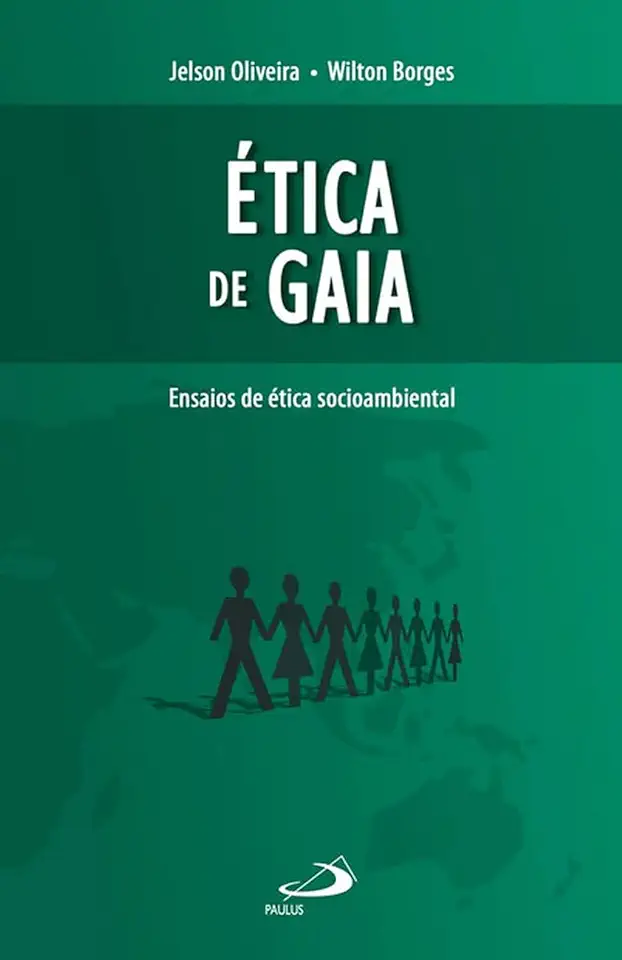
Gaia Ethics - Jelson Oliveira and Wilton Borges
Gaia Ethics: A Path to a Sustainable and Just Future
In their groundbreaking book, "Gaia Ethics: A Path to a Sustainable and Just Future," Jelson Oliveira and Wilton Borges present a compelling vision for a new way of thinking about our relationship with the Earth. Drawing on insights from ecology, philosophy, and indigenous wisdom, they argue that we must recognize the Earth as a living, self-organizing system and adopt an ethical framework that respects its inherent value.
A New Understanding of the Earth
Oliveira and Borges begin by challenging the traditional view of the Earth as a passive resource to be exploited for human benefit. Instead, they argue that the Earth is a complex and dynamic system that is constantly adapting and evolving. They draw on the concept of Gaia, the ancient Greek goddess of the Earth, to describe the Earth as a self-organizing system that maintains its own balance and harmony.
This new understanding of the Earth has profound implications for our ethical relationship with it. If the Earth is a living being, then we have a moral obligation to respect its integrity and well-being. We can no longer afford to treat the Earth as a mere commodity to be exploited for our own selfish ends.
The Need for Gaia Ethics
Oliveira and Borges argue that the current environmental crisis is a direct result of our failure to recognize the Earth's inherent value. Our economic system is based on the assumption that the Earth's resources are infinite, and we have been consuming them at an unsustainable rate. This has led to climate change, pollution, and the extinction of countless species.
To address the environmental crisis, we need to adopt a new ethical framework that respects the Earth's inherent value. This means recognizing that the Earth is not ours to do with as we please. We are part of the Earth, and we have a responsibility to care for it.
Principles of Gaia Ethics
Oliveira and Borges propose a set of principles for Gaia ethics that can guide our actions and decisions. These principles include:
- The Earth has inherent value. The Earth is not a mere resource to be exploited for human benefit. It is a living being with its own intrinsic value.
- We are part of the Earth. We are not separate from the Earth. We are part of a complex web of life that sustains us and gives us meaning.
- We have a responsibility to care for the Earth. We have a moral obligation to protect the Earth and its inhabitants. We must live in a way that respects the Earth's integrity and well-being.
Putting Gaia Ethics into Practice
Oliveira and Borges offer a number of practical ways to put Gaia ethics into practice. These include:
- Reducing our consumption. We can reduce our impact on the Earth by consuming less. This means buying less stuff, eating less meat, and driving less.
- Supporting sustainable agriculture. We can support sustainable agriculture by buying organic food and supporting local farmers.
- Protecting biodiversity. We can protect biodiversity by supporting conservation efforts and reducing our use of pesticides and herbicides.
- Fighting climate change. We can fight climate change by reducing our greenhouse gas emissions and investing in renewable energy.
Conclusion
"Gaia Ethics: A Path to a Sustainable and Just Future" is a powerful and inspiring book that offers a new way of thinking about our relationship with the Earth. Oliveira and Borges argue that we must recognize the Earth's inherent value and adopt an ethical framework that respects its integrity and well-being. By doing so, we can create a more sustainable and just future for all.
Enjoyed the summary? Discover all the details and take your reading to the next level — [click here to view the book on Amazon!]